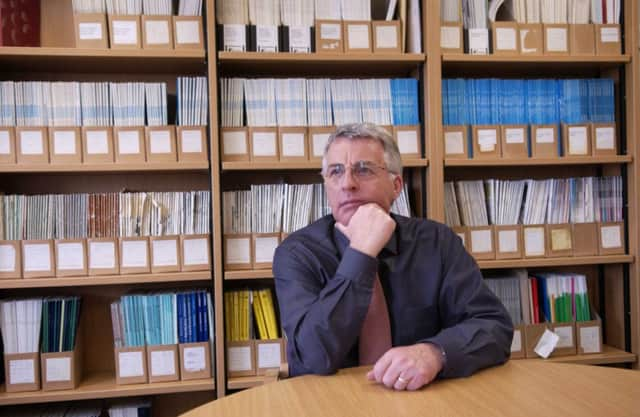Home rule fiscal autonomy ‘doesn’t add up’


One of Scotland’s leading economists, Professor Brian Ashcroft, has claimed public servants working for the chief economic adviser, Dr Gary Gillespie, have overstated the economic case for full fiscal autonomy.
Writing for the Scotland on Sunday website, Ashcroft claims that Scottish Government analysis published this month to back up the SNP administration’s drive for more powers is based on flawed assumptions.
Advertisement
Hide AdAdvertisement
Hide AdSturgeon has put her proposal for full fiscal autonomy at the heart of her general election campaign, listing it as one of her red-line issues in any coalition talks.
Full fiscal autonomy would see Holyrood take charge of all taxation and spending.
Ashcroft, emeritus professor of economics at Strathclyde University, examined a paper published by the government on 9 March which claimed Scotland would see GDP growth, more jobs and tax revenues because of “full revenue retention”.
Ashcroft argued that the concept of “full revenue retention” was the same as full fiscal autonomy, because Scotland would retain all revenue from Scottish taxation.
According to Ashcroft, economists in the Office of the Chief Economic Adviser had wrongly assumed when carrying out their economic modelling that full revenue retention would be accompanied by the continuation of the Barnett Formula. The Barnett Formula is the funding mechanism which sees each Scot receive £1,200 more per year from the Treasury than the UK average.
Sturgeon’s opponents have argued full fiscal autonomy would see Scotland left with a £6 billion black hole, because transferring all power and taxation to Scotland would mean the abolition of the Barnett Formula.
“It is wholly unrealistic to imagine a policy in which in addition to the Barnett Formula the Scottish Government also received any increases in Scottish tax yield,” Ashcroft wrote.
Ashcroft also took issue with analysis estimating that Scotland would see a 0.1 per cent productivity increase per year over the next decade with the new powers coming from the Smith Commission.
Advertisement
Hide AdAdvertisement
Hide AdHe said: “There is no rigorous analysis of how policy gets productivity, investment and exports to rise. It is fanciful. It is surely not the job of the government economic service in Scotland to simply and unquestioningly affirm the dreams of government politicians.”
Last night, Jackie Baillie, Scottish Labour’s shadow cabinet secretary for finance, said: “We expect SNP ministers to make fanciful claims about their economic strategy, but it is a serious matter when civil servants seem to be coerced into following suit. Professor Ashcroft is a very respected economist and I hope his comments are listened to by the first minister and her deputy, John Swinney, who is also finance minister. Of course, as Scottish Labour has proposed, the Scottish Parliament should have its own office of budget responsibility so we could receive an independent view of the SNP Government’s fantasy economic model.”
A Scottish Government spokesman said: “Going forward, these figures illustrate once again the need for the Scottish Government to have full control of job-creating powers.”
FOLLOW US
SCOTSMAN TABLET AND MOBILE APPS